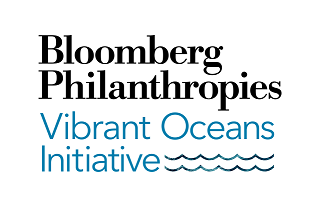WATERSHED INTERVENTIONS FOR SYSTEMS HEALTH IN FIJI (WISH Fiji)
Why watershed management matters?
Watershed condition affects the health and well-being of people and the downstream environments in which they live. Recent studies indicate that there is higher incidence of waterborne bacterial diseases like typhoid and leptospirosis within watersheds with high amounts of cleared land and higher densities of livestock accessing waterways, while watershed alterations that promote flooding and standing water can accelerate transmission of dengue. Studies also show that some of these same activities result in greater sediments and nutrients entering waterways, which can have devastating impacts on freshwater and coastal coral reef ecosystems on which local people depend for food, livelihoods and cultural practice.
These findings suggest that targeted watershed and water management can both reduce water-related disease risk and improve downstream ecosystem condition to support the foundation for overall system health.
The Watershed Interventions for Systems Health in Fiji (WISH Fiji) project embraces this integrated approach by working with national and local government, rural communities and the commercial sector in Fiji to take a systems approach to health and well-being through focused action within five river sub-catchments with documented cases of typhoid, leptospirosis and/or dengue. We are transforming management from reactive to preventative action by improving the ability of integrated systems to predict, prevent, respond and recover from water-related diseases and natural disasters. In sub-catchments of the Dawasamu, Waibula, Upper Navua, Bureta and Dama rivers, we are:
-
Gathering baseline information on land and water use, water and sanitation infrastructure, water quality, ecosystem condition and recent suspected and confirmed cases of water-related disease;
-
Using this information to co-design and adapt targeted management interventions with local communities;
-
Working with local leaders and government agencies to improve health and watershed system governance; and
-
Monitoring the impact of these changes over time.
Through these strategies, by 2021 we aim to:
-
Reduce the incidence of water-related diseases in people and downstream coral in five sub-catchments;
-
Empower communities to access and maintain their fundamental right to clean water;
-
Strengthen local connections to place to enhance environmental stewardship and to maintain cultural practice;
-
Develop a coordination mechanism for systems health governance between communities and government, and across commercial sectors; and
-
Facilitate approaches to sustainably finance and scale interventions nationally.
Achievement of these objectives will lead to improved health and well-being of people and ecosystems across Fiji, while also providing a global model for integrated island management.
Partners
WISH Fiji is a collaboration between the University of Sydney, Edith Cowan University, Fiji National University, and the Wildlife Conservation Society, in partnership with the Fiji Ministry of Health and Medical Services, Water Authority of Fiji, Pacific Community, UNICEF and World Health Organization.
Resource material
WISH Fiji Factsheet [download]
WISH Fiji website [access]

